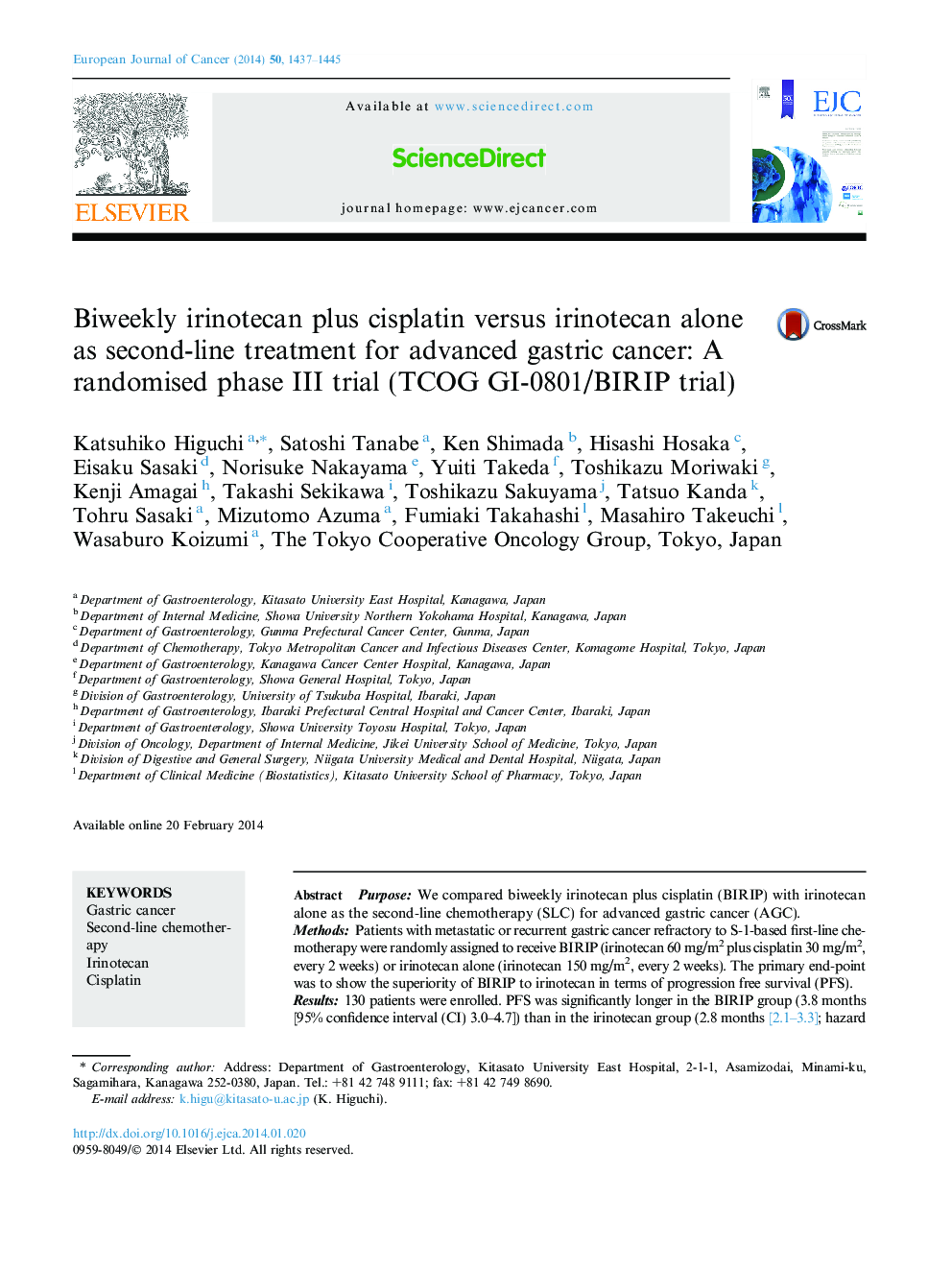| Article ID | Journal | Published Year | Pages | File Type |
|---|---|---|---|---|
| 2121920 | European Journal of Cancer | 2014 | 9 Pages |
PurposeWe compared biweekly irinotecan plus cisplatin (BIRIP) with irinotecan alone as the second-line chemotherapy (SLC) for advanced gastric cancer (AGC).MethodsPatients with metastatic or recurrent gastric cancer refractory to S-1-based first-line chemotherapy were randomly assigned to receive BIRIP (irinotecan 60 mg/m2 plus cisplatin 30 mg/m2, every 2 weeks) or irinotecan alone (irinotecan 150 mg/m2, every 2 weeks). The primary end-point was to show the superiority of BIRIP to irinotecan in terms of progression free survival (PFS).Results130 patients were enrolled. PFS was significantly longer in the BIRIP group (3.8 months [95% confidence interval (CI) 3.0–4.7]) than in the irinotecan group (2.8 months [2] and [3]; hazard ratio 0.68, 95% CI 0.47–0.98; P = 0.0398). Median overall survival was 10.7 months in the BIRIP group and 10.1 months in the irinotecan group (HR 1.00, 95% CI 0.69–1.44, P = 0.9823). The objective response rate was 22% in the BIRIP group and 16% in the irinotecan group (P = 0.4975). However, the disease control rate was significantly better in the BIRIP group (75%) than in the irinotecan group (54%, P = 0.0162). The incidences of grade 3 or worse adverse events did not differ between the two groups. Any grade elevation of serum creatinine was more common in the BIRIP group (25% versus 8%, P = 0.009), but any grade diarrhoea (17% versus 42%, P = 0.002) was more common in the irinotecan group.ConclusionBIRIP significantly prolonged PFS as compared with irinotecan alone and was tolerated as SLC, but did not demonstrate the survival benefit in this trial.
